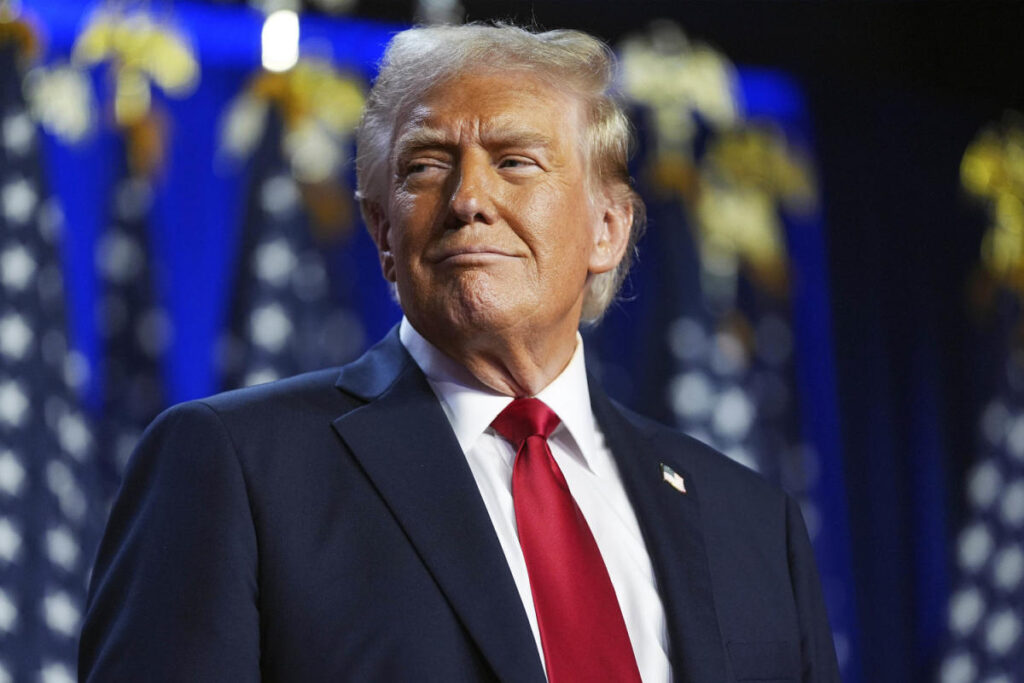On a momentous election night in West Palm Beach, Florida, former President Donald Trump proclaimed victory in a series of critical swing states, most notably Pennsylvania, although major news networks had yet to officially declare a winner at the time. Addressing an enthusiastic crowd at the Palm Beach County Convention Center, Trump expressed gratitude to the American people for electing him as their 47th president, while also referencing his previous term, undeniably signaling his intent to reclaim the presidency. He characterized this campaign as an unprecedented movement in American politics, asserting that the level of support he received was historic and indicated a larger purpose going forward, emphasizing the need for national healing upon his return to the White House.
Joined on stage by family members, key staff, and his running mate, Senator JD Vance of Ohio, Trump’s victory speech leaned heavily on the notion of a “political comeback,” with Vance highlighting the significance of their journey together. The atmosphere was jubilant as attendees celebrated Trump’s victories in pivotal states, with the first significant wins in Georgia and North Carolina setting the tone for the evening. The announcement of Pennsylvania’s win prompted cheers and excitement among supporters, who relished the achievement as it brought Trump closer to the necessary Electoral College majority needed for victory.
As the night progressed, Trump was seen leading in the popular vote by a margin of nearly 5 million votes, a feat that would mark him as the first Republican candidate since George W. Bush in 2004 to win the national popular vote. His acknowledgment of this achievement was met with chants from supporters, reinforcing his campaign’s message of revitalization and strength. Trump interpreted this endorsement as indicative of a broader sentiment in the American electorate and expressed a commitment to restore the country’s “special” quality, as he believed it had diminished over the past few years.
Although Trump refrained from delving deeply into specific policy discussions during his address, he did take the opportunity to reiterate one of the main themes of his campaign: a commitment to stringent immigration policies. He underscored the necessity of securing the nation’s borders and emphasized that while the country should welcome immigrants, it must ensure that the process is legal and orderly. This focus on immigration was likely designed to resonate with his core base, which has consistently viewed border security as a critical issue.
The excitement within the ballroom was palpable as supporters embraced the significance of the election results, uniting in a display of optimism and celebration. Trump’s remarks served not just as a victory declaration but also as a rallying cry for a movement he framed as larger than himself. His optimism about the future trajectory of the nation was clearly aimed at galvanizing his supporters and reinforcing the notion that their collective efforts had led to a momentous outcome.
Ultimately, Trump’s assertion of victory, even in the absence of formal confirmation from major media outlets, encapsulated the fervor surrounding his campaign and the perception of a transformative moment in American political history. As he prepared to step back into a prominent leadership role, Trump’s message of healing and restoration struck a chord with many in attendance, setting the stage for a potential second term and a continuation of his political legacy. The night was marked not only by celebration but also by an underlying anticipation of the challenges that lay ahead as Trump sought to lead the nation in a new direction.

